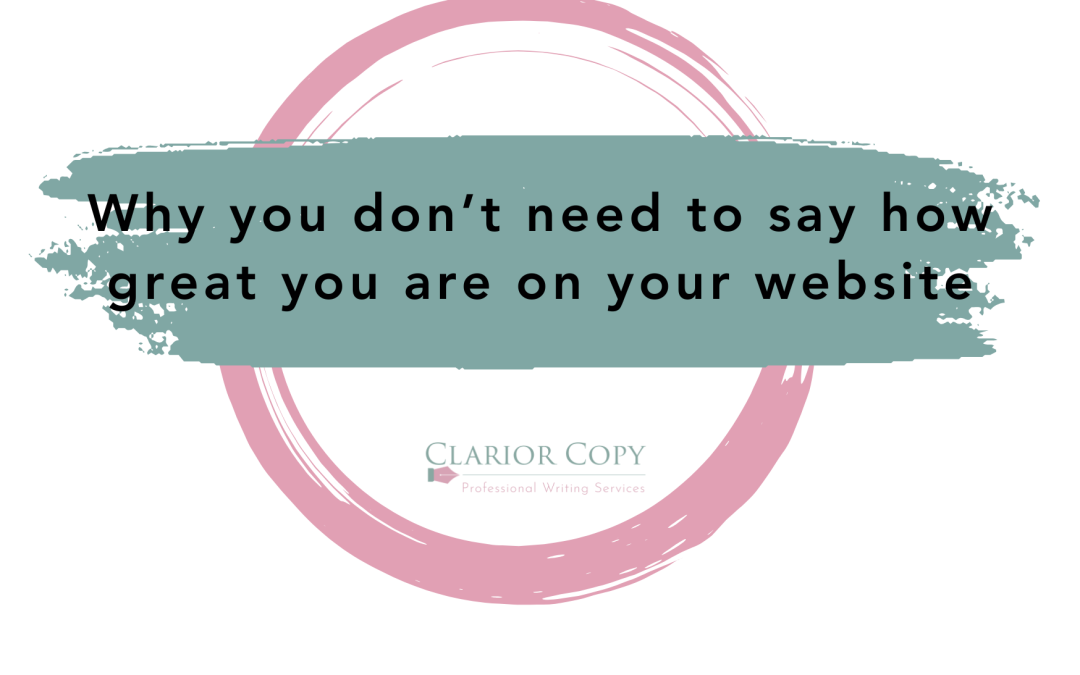Your website is your shop window right? It’s your chance to tell your prospective clients how excellent you are at your job?
Well, actually, no. That’s not what your website is all about.
I see lots of lawyers and law firms making this mistake. I understand the reasoning behind it: Law is a competitive marketplace and you want to put your best foot forward and explain why you’re the best firm for the job.
But your ‘best foot forward’ isn’t necessarily listing all your credentials all at once.
Imagine you’re on a first date and your date walks in, sits down and says:
“I’m a catch. I’m very successful in my career. I earn loads of money. I drive a fancy car. I’m really very interesting and I have lots of tailored stories to tell you in due course to secure the success of this partnership. I’m emotionally intelligent and I understand all of your needs.”
How are you feeling?
Probably like you want to run away and avoid meeting this person ever again.
And you probably have a few other questions like:
- Why are you speaking like a robot?
- Clearly you’ve misjudged your emotional intelligence if you’ve started the conversation like this?
- Wouldn’t you just tell me a good story if you actually had one?
Very valid questions.
Yet so many law firm websites make this mistake. They open the conversation with lines like:
- We have a band 1 ranking in Chambers UK for our work in personal injury
- We are a leading firm in Health & Safety law
- Our highly experienced team is recommended by the Legal 500
- Our award-winning property team is a unique force in the market
- As a market leader we pride ourselves in the exceptional work we do
- We have outstanding depth of knowledge
- Our unrivalled knowledge sets us apart
It’s just a little… off-putting isn’t it?
Imagine you’re meeting a potential client for the first time. Would you bundle in there with hyperbole? Or would you try to establish a rapport first? Ask them a bit about their business, and the challenges they’re facing at the moment?
It’s the same for your website. Start the conversation by building rapport. Give your reader something that they can agree with. Give them something that’s relevant to them. Then they know they can trust you. They know they’re in the right place.
Instead of your Chambers rankings, why not start with something like this:
“Disputes are an unavoidable part of running a business. You can’t control when another party breaches a contract, or when a supplier’s performance is substandard. But you can control the impact that problems like these have on your business.”
Or this:
“Whether you’ve made your mind up to get a divorce, or you simply want to talk through your options, we listen to your story and help you find a way forward.”
You get your reader on side with an opening line like that. You show that you understand what they’re going through, and you show that you’re willing to listen.
Think of your website copy as a conversation. Imagine you’re meeting your client for the first time, and then put pen to paper about what you might say, and the order you might say it in.
It’s one of those tasks that’s easier said than done. How do you create a conversation when it’s necessarily one-sided? How do you make the reader feel seen and understood, and yet reach a number of different potential clients with the same copy?
That’s where copywriting techniques come in. And that’s why lots of law firm websites are a little underwhelming. They’re either written by lawyers, who haven’t (yet) mastered copywriting techniques. Or they’re written by copywriters, who don’t know much about the law.
If you’d like someone who can do both, you need a legal copywriter (hi!).

